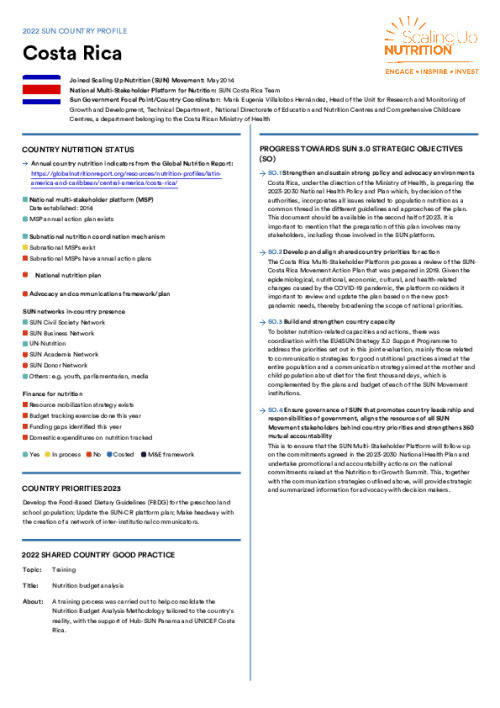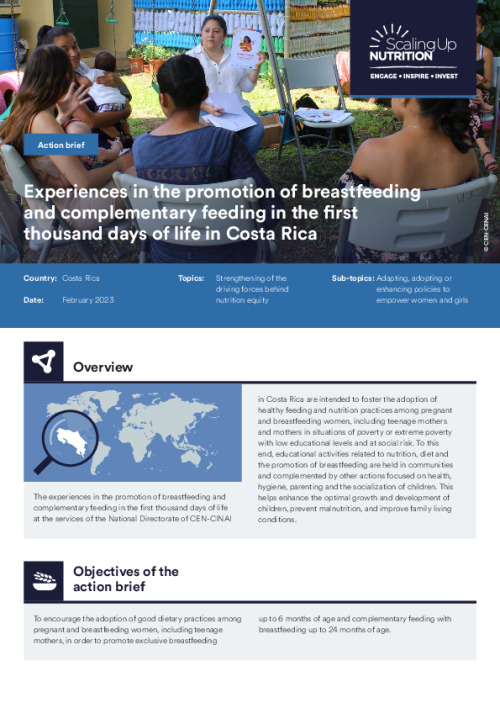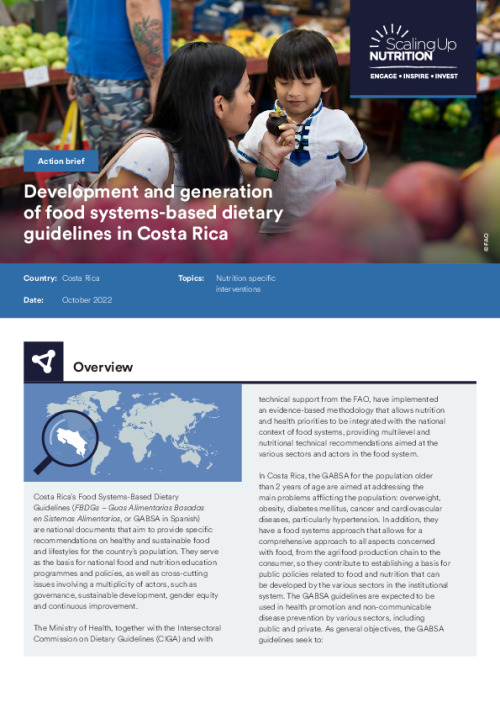
Costa Rica
Joined Scaling Up Nutrition (SUN) Movement
May 2014
National multi-stakeholder platform for nutrition
SUN Costa Rica Team
Sun Government Focal Point/Country Coordinator
María Eugenia Villalobos Hernández, Head of the Unit for Research and Monitoring of Growth and Development, Technical Department , National Directorate of Education and Nutrition Centres and Comprehensive Childcare Centres, a department belonging to the Costa Rican Ministry of Health
Country nutrition status 2022
- Yes
- In process
- No
- Costed
- M&E framework
National multi-stakeholder platform (MSP)
National nutrition plan
Advocacy and communications framework/plan
Subnational nutrition coordination mechanism
SUN networks in-country presence
Finance for nutrition
Country priorities 2022
2022 Shared country good practice
Nutrition budget analysis
Training
A training process was carried out to help consolidate the Nutrition Budget Analysis Methodology tailored to the country's reality, with the support of Hub-SUN Panama and UNICEF Costa Rica.
Progress towards SUN 3.0 Strategic Objectives (SO)
Costa Rica, under the direction of the Ministry of Health, is preparing the 2023-2030 National Health Policy and Plan which, by decision of the authorities, incorporates all issues related to population nutrition as a common thread in the different guidelines and approaches of the plan. This document should be available in the second half of 2023. It is important to mention that the preparation of this plan involves many stakeholders, including those involved in the SUN platform.
The Costa Rica Multi-Stakeholder Platform proposes a review of the SUN-Costa Rica Movement Action Plan that was prepared in 2019. Given the epidemiological, nutritional, economic, cultural, and health-related changes caused by the COVID-19 pandemic, the platform considers it important to review and update the plan based on the new post-pandemic needs, thereby broadening the scope of national priorities.
To bolster nutrition-related capacities and actions, there was coordination with the EU4SUN Strategy 3.0 Support Programme to address the priorities set out in this joint evaluation, mainly those related to communication strategies for good nutritional practices aimed at the entire population and a communication strategy aimed at the mother and child population about diet for the first thousand days, which is complemented by the plans and budget of each of the SUN Movement institutions.
This is to ensure that the SUN Multi-Stakeholder Platform will follow up on the commitments agreed in the 2023-2030 National Health Plan and undertake promotional and accountability actions on the national commitments raised at the Nutrition for Growth Summit. This, together with the communication strategies outlined above, will provide strategic and summarized information for advocacy with decision makers.

